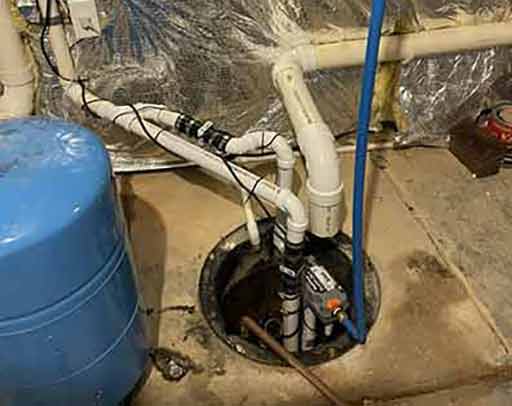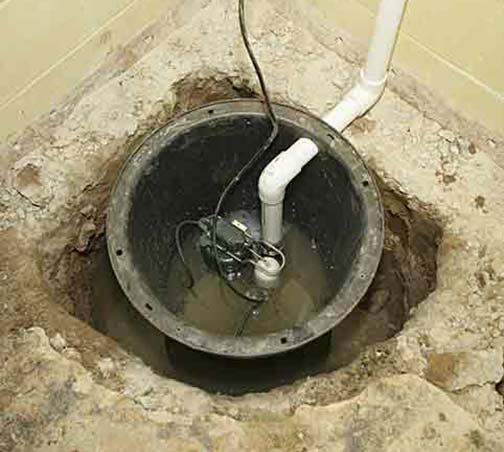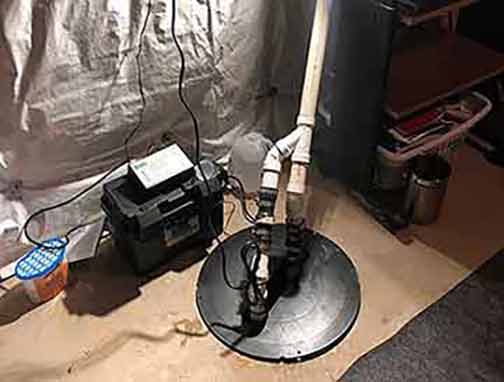The time eventually comes when you need to replace the sump pump in your basement with a new one. Sometimes, the reason for wanting to do this is that the old sump pump no longer works. It could also be that although your current sump pump still works, the issues with it have become too frequent.
Whatever your reason for wanting a new sump pump, this process should not be a simple matter of buying a new pump to replace the existing one. As KRS Holdings an Alexandria property management company says the period of sump pump replacement is the best time to assess your sump pump system’s performance and reexamine your home’s needs.
If there are any lingering issues with the sump pump system, this is the time to correct them. That is also the best time to address problems with the sump basin and other components of your sump pump system. When replacing your sump pump, assessing the entire system will help you get the most out of the new installation.
In this brief post, we explain five tips from our experts on what to do when replacing the sump pump in your home. These essential steps will ensure that you get a sump pump for your home that will give you minimal problems throughout its projected service lifetime.
Essential tips for replacing your sump pump
Know the different types of sump pumps
There are two types of sump pumps you can get for your home: a submersible pump or a pedestal pump.
- Pedestal sump pumps are mounted on a column above the water level. They do not come into contact with the water inside the sump pit. The advantages of this type of pump are that it is cheaper and usually lasts longer. However, pedestal sump pumps are noisy, and since the pump sits above the sump basin, they are not aesthetically pleasing.
- Submersible sump pumps are designed to be submerged inside water. You can install them within the sump basin because the motor is encased in a waterproof housing. Submersible pumps are more powerful than pedestal pumps and are not as noisy. However, they cost more than pedestal pumps and usually require more maintenance.
What to think of when choosing a sump pump for your home
You need to consider several factors to determine if a specific sump pump is the right fit for your home. These include the type of sump pump, its size, energy efficiency and cost. Homes that are prone to flooding are better served by a submersible pump. The right size of a sump pump for the home is determined by the volume of water the pump will handle. That depends on your location’s potential for flooding. When buying a new sump pump, you also want to consider the machine’s energy efficiency. Energy-efficient sump pumps usually come with variable speed settings for changing water levels. Noise is another important consideration when selecting a sump pump.
Assessing and cleaning your sump pit
Firstly, it is assumed that your sump pit is designed to match your home’s needs and the size of your sump pump. If there is a mismatch between the sump pump and the sump basin, you will either overwork your sump pump or your home will be exposed to the risk of flooding (despite the presence of a sump pump). In addition to proper sizing, you want to keep the sump pit clean and odor-free. Before installing a new sump pump, get rid of any debris inside the pit and obstructions in the drainage system. Fix any damage to the basin and install a cover to keep debris out of the sump basin.
On average, you can expect to spend between $500 and $1,200 to buy and install a new sump pump.
Sump pump replacement cost
On average, you can expect to spend between $500 and $1,200 to buy and install a new sump pump. But this price depends on whether you will be using the existing piping. Expect the cost to be higher if you plan to replace the pipework. Installing a submersible or a larger-sized sump pump is going to cost more. Other factors that can inflate your sump pump installation costs are the installation of multiple pumps (a backup system along with the primary sump pump), modification of the old piping and if you plan to make any improvements to your existing sump basin.
Installing a backup system
Consider installing a battery-powered backup sump pump system. A backup sump pump ensures that your home will stay protected even when there is a power outage. Also, if there is a problem with your primary sump pump, the backup system will keep your basement dry while you fix the main sump pump. Adding a backup sump pump means additional costs, but the benefits of the system are worth the expense.
Finally, should you replace the sump pump by yourself or should you hire an expert? You can do the installation yourself if you have experience working with plumbing systems. But to ensure the job is correct and safe, you may want to hire a professional plumber.


